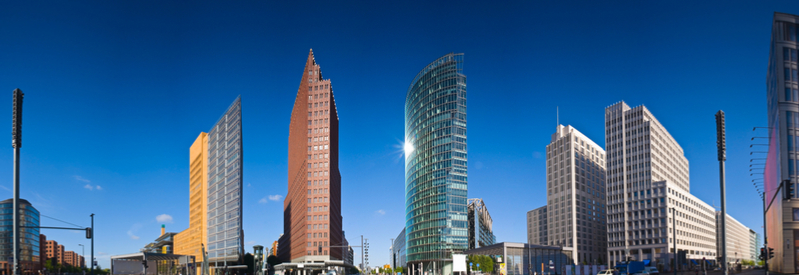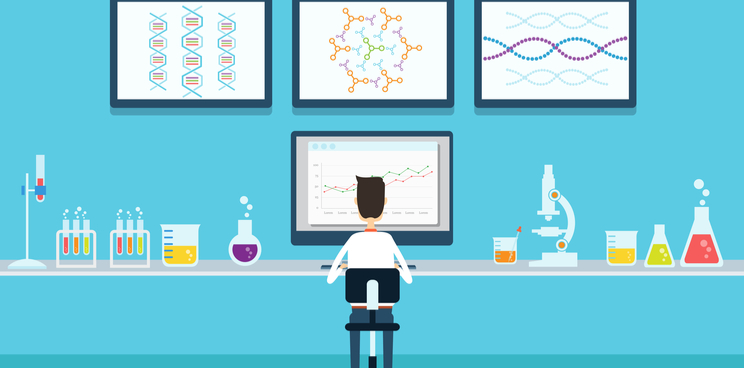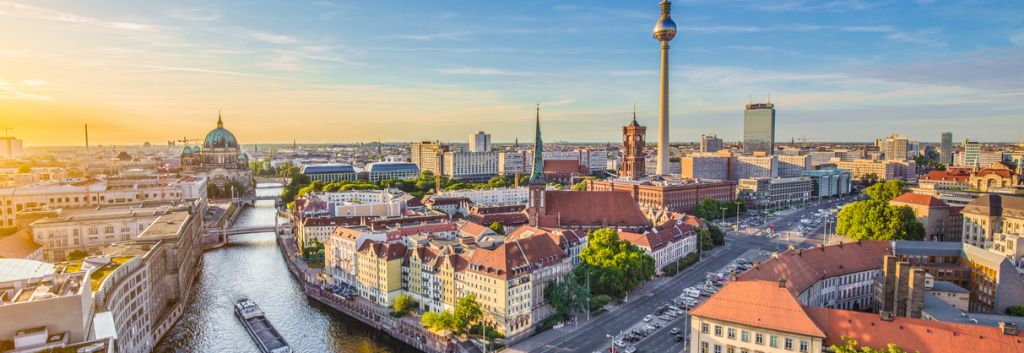Newsletter Signup - Under Article / In Page
"*" indicates required fields
Germany’s capital city Berlin is the perfect meeting place for international and German biotech companies. See here why the city has become a hotspot for life sciences research institutions and businesses!
“Berlin! Berlin! We’re going to Berlin!” It might be a phrase usually sung by football fans, but maybe it’s time to have it chanted by other groups as well!
With its overflowing potential and many strengths, Germany’s capital has become a life sciences centre treasured by many global players. Over 240 biotech companies, 30 pharmaceutical companies and more than 30 research institutions, including distinguished centers, such as Max Planck and Leibniz Institutes, have swept Berlin to the forefront of biotechnology research.
The tightly woven network of companies, universities, research institutions and startups is the secret to Berlin’s success in biotech and digital health. From all over the world, companies have come to Berlin to settle and unfold their potential. Amongst them are Sanofi from France, Takeda from Japan, Pfizer from the United States, and Berlin-Chemie, which belongs to the Italian Menarini Group.
“Many global companies treasure the potentials and strengths of the German capital region and have settled here”, says Carolin Clement, Head of Unit Biotech and Pharma at Berlin Partner for Business and Technology. “The highly specific areas of expertise of local biotech businesses, the dynamic startup scene and numerous renowned scientific institutions are of a great advantage.”

Zoom in on the centre of Berlin. With its looming glass buildings and world famous sites, the Potsdamer Platz is not only a magnet for visitors, but also home to two well-known international pharmaceutical companies. Although its headquarters are based in Paris, Sanofi, for example, has its sales and marketing offices in walking distance of the famous Sony Centre and the Berlin Philharmonic.
More than 1000 employees pursue the goal of supporting innovative therapies and monitoring established drugs in fields such as diabetes, oncology and cardiovascular diseases, while maintaining close contact with doctors, pharmacists and other healthcare professionals.
Finding Talents is Easy in Berlin
“Berlin is an innovative, open and international city. Especially the latter is extremely important to us, as it allows us to reach out to talents,” remarks Clemens Kaiser, chairman of the board of the Sanofi-Aventis Deutschland GmbH. “Young people enjoy coming to Berlin, because they find many like-minded people, life is good and the city is historically important.”

Right on the opposite side of the Potsdamer Platz, one can find Pfizer’s head office in Germany. It accommodates the human medicine and consumer healthcare departments and the oncology headquarter, covering Europe, Africa, the Middle East, China and Asia.
One of Pfizer’s initiatives is the Berlin Research Lab (BRL). Founded in 2016, the BRL supports biotech innovation and diversity by bringing together companies and researchers from different areas of expertise, such as biotechnology, biopharmaceutics or biomedicine. Subsequently, their focus of research is also highly variable and covers subject areas, such as oncology, neuroscience, cardiovascular and metabolic diseases, and immunology. Research partners can also focus on the study of rare diseases or vaccines.
Dr Peter Löschmann, director of the BRL, explains why Germany‘s capital was chosen as a location, “Berlin is the German health capital. Such a large network of young startups, established biotech companies and research institutions, like Charité, can be found nowhere else in Germany.”
In May 2017, Pfizer announced that another of its initiatives, the Berlin Healthcare Lab, would be renamed Healthcare Hub Berlin after it became the model for an expansion of the programme to other global cities, including London, Stockholm, Sydney and Toronto.
“We are delighted that our two-year old Berlin Healthcare Lab has become the model for our globally and internationally connected Healthcare Hubs,” says Peter Albiez, chairman of the board at Pfizer Germany. “With our Berlin Healthcare Hub we want to continue to develop digital-healthcare solutions that complement our medicines and help patients to achieve better treatment results,” continues Albiez, emphasizing that their main focus lies in the cooperation with Berlin startups.

About 1.5 kilometers east of the Potsdamer Platz lies another popular site, the Gendarmenmarkt. Here, one can find Takeda’s sales and marketing headquarters from which it has been managing its German market since 2012. The company’s fields of expertise are mainly gastroenterology, oncology, cardiometabolic diseases, urology, gynecology and diseases of the immune system.
A production site can be found in Oranienburg, Brandenburg, where approximately 7 billion tablets, pills and capsules are produced per year. Oranienburg is the centre of a global network for the distribution of Takeda’s medicinal products.
Since 2014, the company has invested approximately €100M ($120M) in the construction of a new production module, which is to be opened at the end of 2017. Up to 180 new jobs will be generated. This move ties in with Takeda’s apprenticeship and training programs where young people are educated in the fields of pharmacy, chemistry, mechatronics and electronics.

As a multicultural and multinational city, Berlin is the perfect pond for companies to fish for talents. Subsequently, many international players work with local startups, benefitting from their innovational approaches and young minds. One of the startups working on the combination of health and digital, is Viomedo. As a company that profited from Pfizer’s Berlin Healthcare Lab, it works on the transparency of clinical studies and informs the public about novel medical research.
Germany’s capital is not only home to many international biotech companies, but also nurtures its very own enterprises, of which several are also highly respected international players. For example, the German company Bayer AG is participating in this year’s BIO International Convention in San Diego, California. Its popular Berlin Bayer Night is organized in collaboration with Berlin Partner for Business and Technology, and is a reception that enables the networking of international life science companies. “One of our tasks is to inform about the Berlin-Brandenburg life science region,” says Clement. “Exhibitions and conferences such as the upcoming Bio International Convention provide the ideal stage for this.”
Come and meet Berlin Partner and representing companies at their booth 4521-6 in the German Pavilion on 19th to 22nd of June 2017, at the BIO International Convention in San Diego!
Images via canadastock, Matthew Dixon, Graphic Farm, akhodi, Rawpixel.com/shutterstock.com






